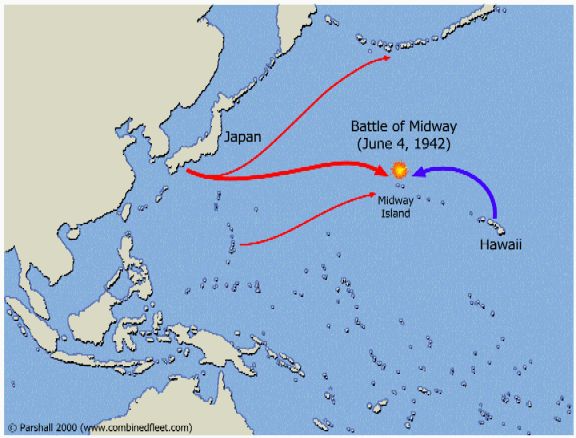 |
| Chicago Tribune journalists exposed military secrets in 1942 but we can't read about it now |
For Elliot Carlson, some of the documents he needs to finish up his history of a World War II incident are sitting in the National Archives under lock and key, the dusty old artifacts not to be viewed by his curious eyes.
World War II was a long time ago, you might say, and don't we all know that the vets are dying off so rapidly that soon there'll be no one alive who witnessed the fighting. Surely there is some kind of time frame that would allow for the release of documents that have been sequestered for the past seventy-five years.
Not in today's modern bureaucracy there isn't.
Mr. Carlson, an octogenarian himself, has written a book about an intriguing case that involved the Chicago Tribune and the Federal Government during the war. It seems that the newspaper published some interesting facts surrounding the Battle of Midway, facts that pretty much told the world that the U.S. had cracked the Japanese code and knew everything the enemy was going to do.
That sort of thing falls under the "loose lips sink ships" rule, and the U.S. Government decided that the journalists were essentially guilty of espionage. The case was more political than factual, a product of the hatred that President Franklin Roosevelt felt for the ardent Republican publisher Col. Robert McCormick. Roosevelt saw a chance to strike at his nemesis, using the power of the Justice Department. Hadn't McCormick used the power of the press to lambaste Roosevelt? Tit for tat, and so a prosecution was put into motion.
A grand jury was convened to discuss the matter, and because the documents Mr. Carlson seeks are transcripts of that same grand jury hearing, he's been told that he can't have them. Grand jury transcripts are sealed, to preserve the secrecy of grand jury proceedings, and so the Justice Department said no, go away. And take your historical interest with you. It's all about preserving the sanctity of grand jury secrecy, even if it's been 75 years.
True bureaucrats never look at the broad picture, of course, because they're all about following the rules to the letter. Even to the point of being ridiculous.
If the point of secrecy is to protect the safety of witnesses, well, you can be sure that they are all either a) dead, or b) not in any danger. It's not like some Japanese double agent is lurking in the shadows, ready to exact revenge.
Thus far, a federal district judge has scoffed at the arguments made by the Justice Department to have the records kept sealed, and a subsequent appeal was also denied by the 7th U.S. Circuit. So that's Justice Department 0, Elliot Carlson 2.
He hasn't won yet, and he's got his eye on the clock as the Justice Department considers its option to ask for a full hearing before the Court of Appeals, or possibly bumping the case up to the Supreme Court. There are rules, after all, and rules are there to be followed no matter what because what would a bureaucrat do at work if not be sure that all rules are being followed?
There's just no place for common sense or a nod to the public good when a bloated bureaucracy is looking out for itself.
No comments:
Post a Comment